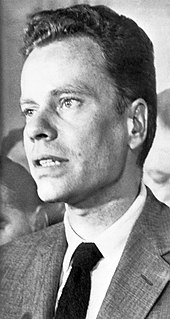A Quote by Ernest Sosa
Descartes's epistemology is a special case of Aristotle's virtue ethics.
Quote Topics
Related Quotes
It would seem that the ingratitude, whereby a subsequent sin causes the return of sins previously forgiven, is a special sin. For, the giving of thanks belongs to counter passion, which is a necessary condition of justice. But justice is a special virtue. Therefore this ingratitude is a special sin. Thanksgiving is a special virtue. But ingratitude is opposed to thanksgiving. Therefore ingratitude is a special sin.
Epistemology now flourishes with various complementary approaches. This includes formal epistemology, experimental philosophy, cognitive science and psychology, including relevant brain science, and other philosophical subfields, such as metaphysics, action theory, language, and mind. It is not as though all questions of armchair, traditional epistemology are already settled conclusively, with unanimity or even consensus. We still need to reason our way together to a better view of those issues.
If what was said in the Ethics is true, that the happy life is the life according to virtue lived without impediment, and that virtue is a mean, then the life which is in a mean, and in a mean attainable by every one, must be the best. And the same principles of virtue and vice are characteristic of cities and of constitutions; for the constitution is in a figure the life of the city.




































